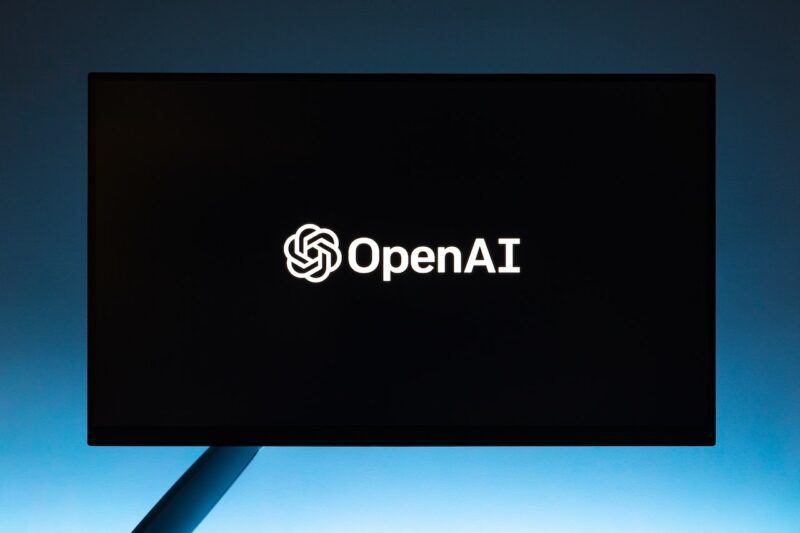Global Issues
The Paradigm Shift Of OpenAI -By Caleb Onah
…as AI progresses rapidly, the decisions made by major tech companies – Microsoft, Google, Facebook, and Amazon will significantly influence the future of open-source AI. Striking a balance between innovation, collaboration, and the pursuit of competitive advantage presents a critical challenge in shaping the trajectory of the AI landscape.

Open-source AI embodies the principles of transparency, accessibility, and collaboration, which have propelled its rapid growth and adoption. Unlike proprietary AI systems, open-source AI projects provide access to their source code, allowing developers to study, modify, and distribute the software freely. This openness promotes innovation, accelerates AI research, and empowers developers to build upon existing solutions, ultimately leading to groundbreaking advancements in AI technologies.
The landscape of open-source AI is undergoing significant changes as tech giants like Google, Meta, and Microsoft reevaluate their commitment to open development. A leaked memo from Luke Sernau, a senior engineer at Google, highlights concerns that the open-source free-for-all may jeopardize the dominance of Big Tech in AI.
While open-source AI models have fueled innovation, their sustainability relies on companies with substantial resources. Models such as LLaMA from Meta AI and BERT from Google have become foundations for many open-source projects. However, the attitude towards open development is shifting, with OpenAI already reversing its open policy due to fears of increased competition.
This shift could result in the next generation of AI breakthroughs being controlled by the wealthiest AI labs, posing a risk to the open-source AI community. In recent years, open-source AI has experienced significant growth, with major players like Microsoft, Google, Facebook, and Amazon contributing to its advancement. These companies have shared their AI technologies, including
Amazon’s Alexa, Google’s TensorFlow, and Microsoft’s Computation Network Tool Kit; Open-source AI enables thorough examination, troubleshooting, and bug-fixing, crucial for AI systems that learn, adapt, and make decisions. Moreover, it fosters innovation by allowing successful entrepreneurs to seamlessly integrate their creations into larger parent companies. Organizations like EleutherAI have also thrived by leveraging OpenAI’s openness to reverse-engineer GPT-3 and develop their own models.
The availability of open-source AI models has facilitated global access, development, and experimentation, driving creativity and innovation. Nevertheless, the open-source AI boom faces challenges. Building large language models from scratch is expensive and complex, limited to a few organizations capable of undertaking the pretraining process. Furthermore, as AI becomes a critical competitive advantage, companies with extensive research capabilities might reassess their commitment to open development.
OpenAI’s recent policy reversal due to competition concerns exemplifies this shift. As AI models become more competitive and valuable, tech giants like Google and Meta may opt to limit open development. While open-source AI has undoubtedly propelled progress in the field, its future hangs in the balance. If tech giants withdraw their support, the open-source AI community may struggle to sustain growth and innovation. However, there are still advocates for open-source AI.
For instance, Hugging Face recently introduced HuggingChat as the first open-source alternative to ChatGPT. Additionally, LunaSec, a company utilizing OpenAI’s products, aims to transition to open-source alternatives in the future. These efforts demonstrate a persistent belief in the advantages of open-source AI and the importance of maintaining a diverse ecosystem for AI development.
As the landscape of open-source AI continues to flourish, driven by the collaborative shifting efforts of a vibrant community in the past. The availability of powerful frameworks such as TensorFlow, PyTorch, Scikit-learn, and Apache MXNet has democratized access to AI technologies, fostering innovation and enabling individuals and organizations like Microsoft, Google, Facebook, and Amazon to push the boundaries of what AI can achieve. As open-source AI projects evolve, they play a vital role in shaping the future of AI by addressing ethical concerns, expanding into emerging domains, and enhancing transparency and accountability. By embracing open-source AI, we can collectively unlock the immense potential of artificial intelligence for the benefit of society.
Furthermore, as AI progresses rapidly, the decisions made by major tech companies – Microsoft, Google, Facebook, and Amazon will significantly influence the future of open-source AI. Striking a balance between innovation, collaboration, and the pursuit of competitive advantage presents a critical challenge in shaping the trajectory of the AI landscape.









